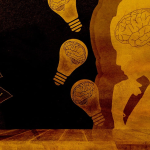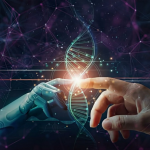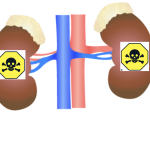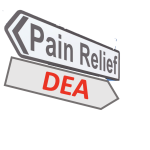Can a high school compel an unwilling student to be vaccinated against COVID-19 and be immune from liability? Turns out the answer is yes, at least according to a recent North Carolina decision.
Policy & Ethics
The DEA announced its plans to re-schedule cannabis from a Schedule 1 drug to Schedule 3 on its list of controlled substances. But this makes it federally illegal to consume cannabis without a doctor’s prescription. We don’t need a doctor’s prescription to purchase alcohol for recreational use at the corner liquor store. We shouldn’t need one for recreational cannabis.
In a justice system where safety is paramount, the debate between progressive prosecutors and their law-and-order counterparts rages on. With divergent approaches to crime, each camp champions its ideology, leaving the public caught in the crossfire. But what policies truly reduce crime?
In a sea of skepticism, while politicians scrape the bottom of global trust rankings, scientists more frequently bask in the warm glow of public confidence. A recent study suggests that not all lab coats are created equal and that a moral compass, rather than knowledge, is critical.
The People for the Ethical Treatment of Animals criticized the South Dakota governor for shooting a farm dog. But PETA has killed far more.
Artificial Intelligence plays an increasingly prominent role in modern life, medicine included. While the technology promises to improve health care in many ways, it also carries potentially serious risks. That raises a critical question: when AI harms patients, who's responsible?
Medical schools emphasizing DEI (Diversity, Equity, and Inclusion) as criteria for admissions is a prescription for disaster.
Medical schools are incorporating critical social justice theory into the way they teach students to diagnose and treat health conditions. Cato scholars Jeffrey A. Singer and Erec Smith explain that this can be hazardous to the health of individuals – and to society.
The recent cases and legislation addressing the destruction of IVF embryos prompts revisiting past cases involving “child murder” in a medical context. Some cases turn on what is in the best interests of the child, while others pivot on the importance of preserving a child’s life, even if it involves terminating the life of another. Sometimes, religion gets involved. And this presents a conundrum.
The sleazy world of dietary supplements is hardly confined to the United States. In Japan, more than 100 people were sickened – and at least five died – after consuming a ridiculous product called Benikoji Choleste, aka red rice yeast. How can such a dangerous supplement be sold? The following should sound quite familiar.
In a recent New York Times essay, a professor of anesthesia and pain management recently protested the Drug Enforcement Administration's opioid manufacturing quotas and micromanagement of doctors treating their patients' pain. At a time when DEA S.W.A.T. teams frequently raid doctors' offices for "inappropriate" prescribing, the professor's essay demonstrated boldness. Unfortunately, the professor's reform proposals were much less bold.
One month after the Alabama Supreme Court declared that frozen embryos are legally considered children – and two weeks after the state’s Legislature undid the major impacts of that decision by protecting IVF facilities – the same issue was faced by several state legislatures. They punted.











